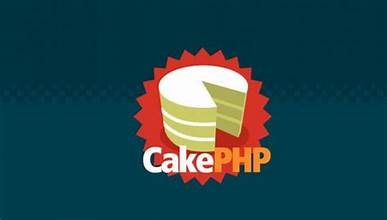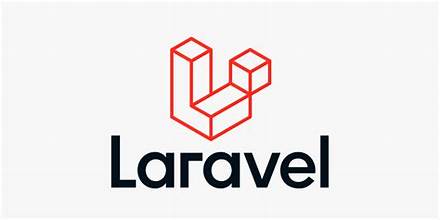
Introduction to Phalcon Framework:
Phalcon is a high-performance PHP web framework built as a C extension to offer developers a full-stack framework with low overhead. It’s designed to be fast, efficient, and feature-rich, providing developers with the tools needed to build modern web applications.
Core Concepts of Phalcon Framework:
- C Extension: Phalcon is unique because its core is implemented as a C extension. This architecture allows it to achieve high performance and low resource consumption.
- Model-View-Controller (MVC): Phalcon follows the MVC architectural pattern, separating the application into models for data handling, views for presentation, and controllers for business logic.
- Dependency Injection: Phalcon implements dependency injection to manage object dependencies and facilitate unit testing and code reusability.
- ORM (Object-Relational Mapping): Phalcon provides an ORM component called Phalcon\Mvc\Model for database interactions, making it easy to work with databases using PHP classes and objects.
- Middleware: Phalcon supports middleware, allowing developers to intercept and modify HTTP requests and responses at various stages of the application lifecycle.
Features of Phalcon Framework:
- High Performance: Phalcon is known for its exceptional performance due to its C extension core and low-level architecture.
- Low Overhead: Phalcon’s C extension architecture results in low memory consumption and minimal overhead compared to traditional PHP frameworks.
- Security: Phalcon includes built-in security features such as input validation, output escaping, and protection against common web vulnerabilities like SQL injection and cross-site scripting (XSS).
- CLI Tools: Phalcon provides command-line interface (CLI) tools for code generation, database migrations, and other common tasks, streamlining development workflows.
- Caching: Phalcon offers caching mechanisms for storing and retrieving data from cache stores like memory, disk, or database, improving application performance and scalability.
- Internationalization and Localization: Phalcon supports internationalization (i18n) and localization (l10n) out of the box, enabling developers to build multilingual web applications with ease.
- Error Handling and Logging: Phalcon provides robust error handling and logging mechanisms, allowing developers to catch and handle exceptions gracefully and log error messages for debugging and troubleshooting.
Phalcon Ecosystem:
- Phalcon DevTools: Phalcon DevTools is a set of command-line tools for Phalcon developers, providing utilities for code generation, database management, and project scaffolding.
- Phalcon Incubator: The Phalcon Incubator is a repository of community-contributed extensions, plugins, and utilities for extending and enhancing Phalcon applications.
- Phalcon Forum and Community: The Phalcon community is active on forums, mailing lists, and social media platforms, providing support, sharing knowledge, and collaborating on open-source projects.
Best Practices for Phalcon Development:
- Follow Phalcon Naming Conventions: Adhere to Phalcon’s naming conventions, directory structure, and coding standards to ensure consistency and maintainability across projects.
- Use Dependency Injection: Leverage Phalcon’s dependency injection container to manage object dependencies and promote loose coupling between components.
- Optimize Database Queries: Optimize database queries using Phalcon’s ORM features such as eager loading, lazy loading, and query caching to minimize database round trips and improve performance.
- Implement Security Measures: Follow security best practices such as input validation, output escaping, and parameterized queries to mitigate common security vulnerabilities and protect against attacks.
- Cache Frequently Accessed Data: Implement caching for frequently accessed data and expensive operations to reduce server load and improve application responsiveness.
- Monitor and Debug: Monitor Phalcon applications using built-in monitoring tools and logging mechanisms. Use debugging techniques to identify and troubleshoot performance bottlenecks and errors.
Deployment and Scalability:
- Server Configuration: Configure web servers such as Apache or Nginx to serve Phalcon applications, ensuring proper URL rewriting and security settings.
- Database Optimization: Optimize database performance by indexing frequently queried columns, tuning database settings, and using caching mechanisms to reduce database load.
- Load Balancing and Scaling: Implement load balancing and scaling strategies to distribute incoming traffic across multiple servers and ensure high availability and scalability of Phalcon applications.
Phalcon Community and Resources:
- Official Documentation: Phalcon provides comprehensive documentation, tutorials, and API references to help developers get started with Phalcon and learn advanced features.
- Phalcon Forum and Mailing Lists: Join the Phalcon forum and mailing lists to ask questions, share knowledge, and interact with Phalcon developers and users from the community.
- Online Courses and Training: Enroll in online courses and training programs offered by educational platforms and Phalcon vendors to deepen your understanding of Phalcon and gain practical experience.
- Community Forums and Blogs: Participate in Phalcon community forums, discussion groups, and blogs to stay updated on Phalcon-related news, tutorials, tips, and tricks shared by the community.
Future of Phalcon Framework:
- Continued Development: Phalcon continues to evolve with regular updates, bug fixes, and new features to meet the changing needs of web development and address emerging technologies and trends.
- Community Growth: The Phalcon community is expected to grow with increased adoption and contributions from developers worldwide, leading to a richer ecosystem of plugins, extensions, and resources.
- Integration with Modern Technologies: Phalcon is expected to integrate with modern technologies and frameworks to facilitate the development of modern web applications, including support for microservices architecture, containerization, and serverless computing.
In conclusion, Phalcon is a powerful and efficient PHP web framework known for its exceptional performance, low overhead, and rich feature set. With its unique C extension architecture and active community support, Phalcon continues to be a popular choice for building high-performance web applications.






